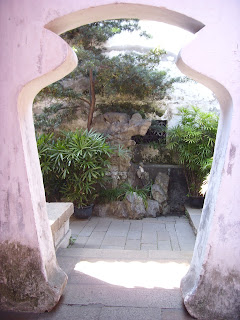Stories
persisted amongst Islanders
that there had been women
aboard the SS Schokland
on that night of January 4th
1943
as the commandeered merchant steamer
departed St Helier Harbour for St Malo
an unscheduled voyage
as a makeshift troop carrier
steered by a Dutch skipper
who didn’t know the local waters.
Women who sat
with German soldiers
crammed in walkways
squatting in holds
- alongside steel girders
and sacks of concrete
for Hitler’s formidable
Atlantic Wall.
A few women perhaps
in
a travelling concert party
who joined the troops in singing
- soldiers
so happy to be on Christmas leave
after a year cooped in Jersey.
Or German nurses
fräuleins going home
destined to breed solid German citizens
when peace came to Europe.
Or maybe French mademoiselles
from the local brothel
girls who had swapped
a life
of drudgery
on muddy farms
or in war-worn towns
for plentiful food and cigarettes
and German arms.
Women not recorded
on the hurriedly-put-together manifest
as
the ship was designated a troop carrier
leaving port after dark
to dodge Allied bombing.
But anyway real women
wearing
earrings
carrying gilt handbags
women
pulled shivering and pale
from the chill January seas
their stories absent and
insignificant
in the news blackout
that concealed German losses
women lingering only in local
rumours…
And aboard the Schokland that night
young soldiers must have been
dreaming
of all their women expecting them
in German towns, in German farms
mothers, sisters, girlfriends, wives
maybe had photographs to visualize
faces not seen for a year
as they counted down
to this moment of leaving the Island.
And that jolt of emotion
as the ship struck the reef
sank rapidly
were those women’s faces with
them
as if real
as the soldiers jumped
into the wintry waters
off Noirmont
an ice blanket numbing their hearts
in those final brief minutes
saying their last
goodbyes
before the cold drowned them?
Those last moments
imagined a thousand times
by all the women who waited
by wives and mothers back
home
willing themselves to have been
there
as their men succumbed
but separated by war and
water
by barbed wire and
mines
reaching invisible arms
out
over the land and sea
receiving only
a ghostly déjà vu
from men pulled into
the surrogate arms of
the ocean
wombed in the hold of the ship
looped in rolls of
steel wire
gathered in by sirens of water
a cold courtesan’s
embrace.
And over the years
divers to the wreck reported finding
jewellery and perfume bottles
stiletto shoes
steel-ware stamped
‘Sandringham Hotel’
- souvenirs perhaps from the Island posting
Christmas gifts for
girlfriends and wives back home -
and a woman’s chain-work
purse
containing a roll of film
of undeveloped memories
lost to the brine…
Under the waves
skirting out from the ship’s hull
the sea world is a boudoir of white
lace
adorned
with purse sponges and necklace shells
mermaid’s tresses and slipper limpets
eyelash weeds and cushion stars
comb jellies and pink sea fans
beadlet
anemones and lady crabs
turban
top shells and queen scallops
fairy shrimps and banded venuses.
A shoal of pouting flicks the water
into a quicksilver curtain
and
cool waves swell
in the form of a woman
a dream of a woman
a
ghost of a woman
in all the drowned ships
the hole in hearts the shape of a woman.
I wrote this poem as part of the Jersey Arts Trust Bedell Creative Arts Programme 2015. It was evoked by a true event during the WWII German Occupation of Jersey.











